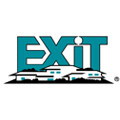With Ed Haraway, Franchisee – EXIT First Realty, MD
Retiring from the real estate industry was once a pipe dream until EXIT Realty’s business model showed agents and owners a better option 28 years ago. Nowadays, many professionals find their way into this business at a young age and enjoy EXIT’s supplemental lifestyle income for what it can do in the now. For some, like Franchisee, Ed Haraway, who saw the powerful shift in thinking residuals created all those years ago, it wasn’t just about the life he could have then; he chose EXIT because of the future it made possible for him and his family as he looks to retire now.
Ed was intrigued with the brand before it had even arrived in the state where he was working. He made the fateful decision to be the first to sign a franchise agreement in Maryland instead of signing with another competitor only months before because he was so attracted to the Formula. He would go on to own a total of five offices across the state, with a roster of some 200 agents at the height of his career, but today feels very different for Ed because, 20 years after opening his first office, he’s in motion on his plan to take his final EXIT from the business.
“I was used to working 16-hour days, six days a week. Now I work three days a week a month. I still do sales and listings when the opportunity arises, but I’m not aggressively looking for new business I guess is the best way to say it,” he joked.
Ed started planning his retirement in 2016 and has been slowly making the transition since moving to his income property in 2019. Situated on a golf course in South Carolina, he purchased it and has rented it out for 17 years. Now in his 70’s, knowing he has substantial investments, his wife’s pension, and his EXIT retirement residuals, he felt it was time.
Those residuals came from the process called Sponsoring which provides EXIT agents with the opportunity to earn additional, single-level income on top of commissions while working, through retirement, and as a beneficiary benefit right past death. It also creates a natural retention within offices, which helps to build the company and the culture for which EXIT is synonymous.
Ed is personally responsible for sponsoring in several agents throughout his tenure with EXIT, many of whom are still active in the company. That works out to over $700,000 in total residual income, where he was averaging just over $4,000 a month during his best year. Being a follower of Author, Dave Ramsey’s financial program, these residuals were vital in helping him become almost entirely debt free before semi-retiring. And when I asked him what he used some of this income for he replied, “Oh, a little bit of everything. Our goal in 2016 when we decided we were going to retire, was to pay off every debt we had. We just earmarked residuals to pay off and pay down those balances. Now that we’re semi retired, we don’t owe anything except for mortgages. Let me tell you, you don’t realize how much you’re paying in car payments and credit cards until you don’t have them anymore.”
A 19-year veteran in the business with another brand when he made the switch to EXIT, Ed was looking for something different and had his eye on both EXIT’s as well as another brand’s model saying, “I felt [EXIT’s] residual benefits were more straightforward and couldn’t be played with. In contrast, profit sharing could be manipulated by the owner, and it was more complicated to explain to agents how it worked. Residuals were peace of mind really. I knew that if something happened and I wasn’t able to work, I still had money coming in or income coming in.”
With over three decades in the industry, Ed has seen his fair share of cycles and market shifts in this business, not to mention personal hardships. After beating cancer twice, once in 2007, and then again in 2013 when he needed a bone marrow transplant, he says the important things that kept him moving successfully forward were always consistency, prospecting, putting clients’ interests before his own, and above all else, having faith.
“I sold homes when interest rates were 15%, when the MLS® went from weekly books to online, when buyer brokerage became a thing in 1993, through the market crash of 2007, and now, with the changes that the National Association of REALTORS’® has introduced,” he said. “No matter what, there are always changes.”
Learn more about the impact Ed’s career has had on EXIT and vice versa by reading the full story in the latest edition of The EXIT Achiever magazine today.


